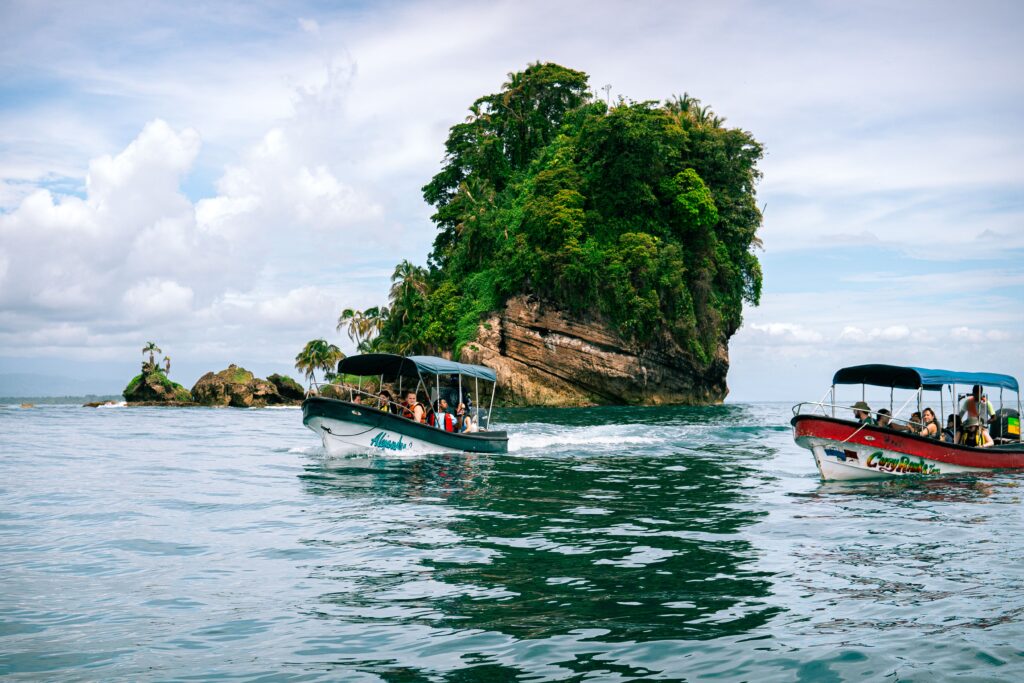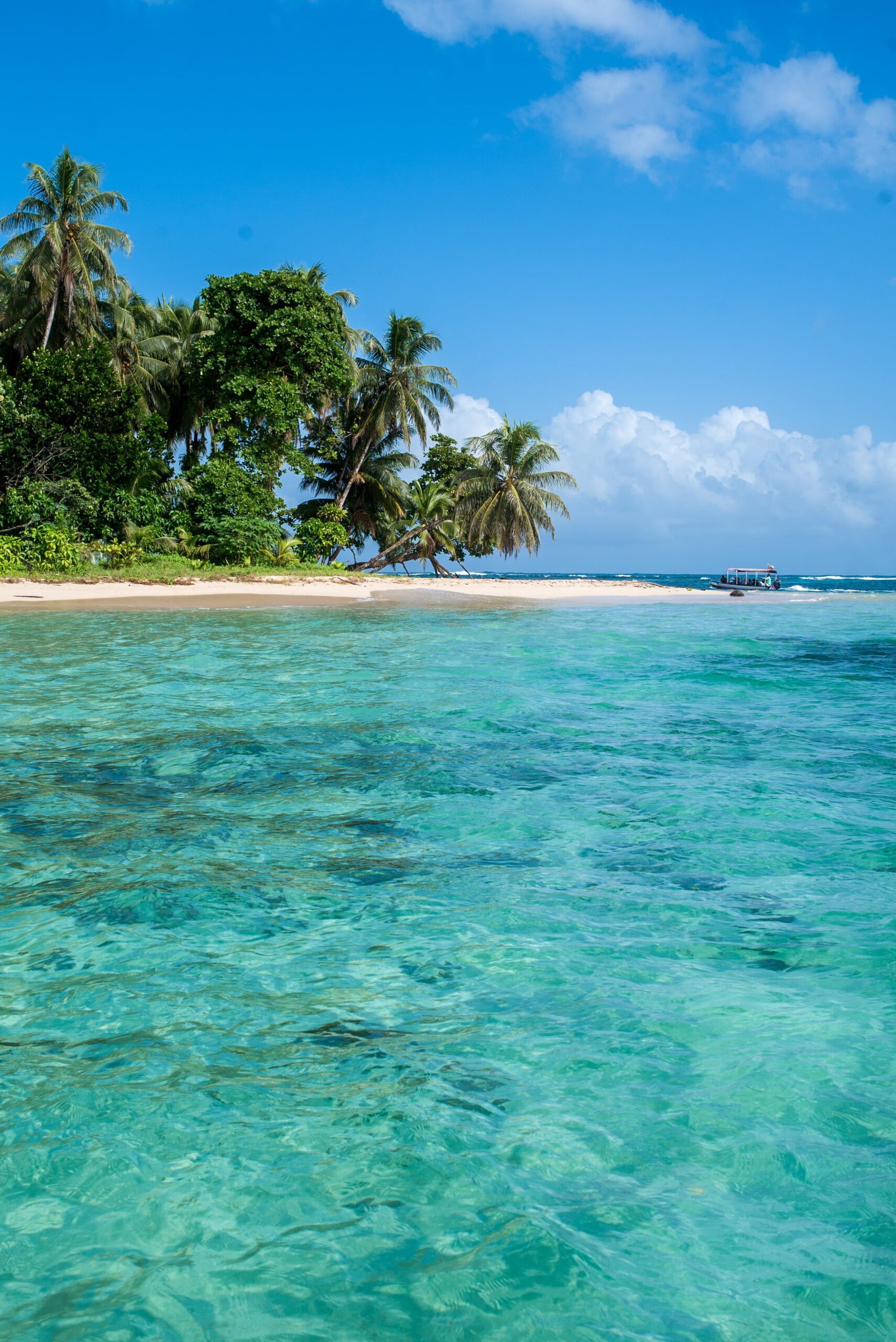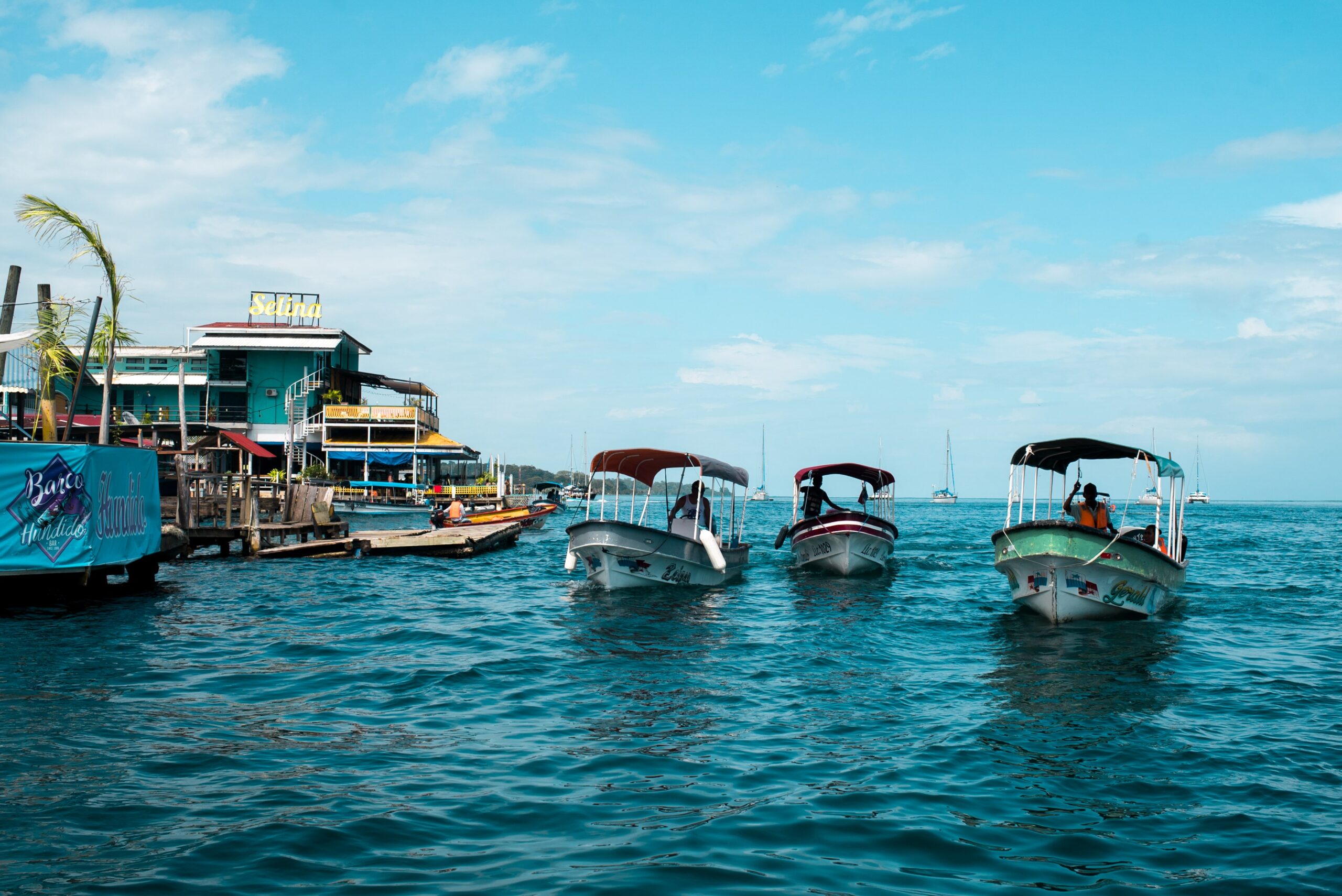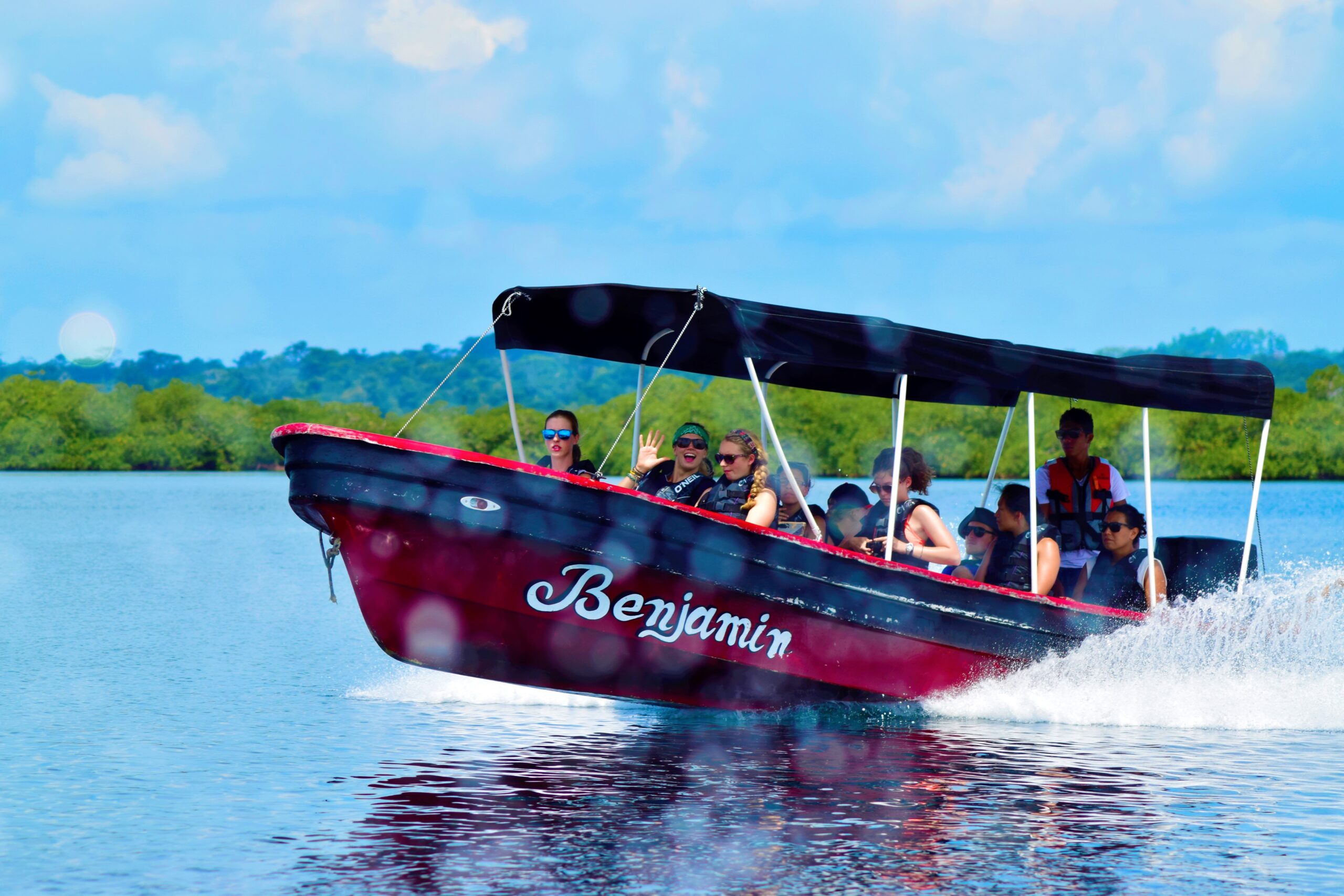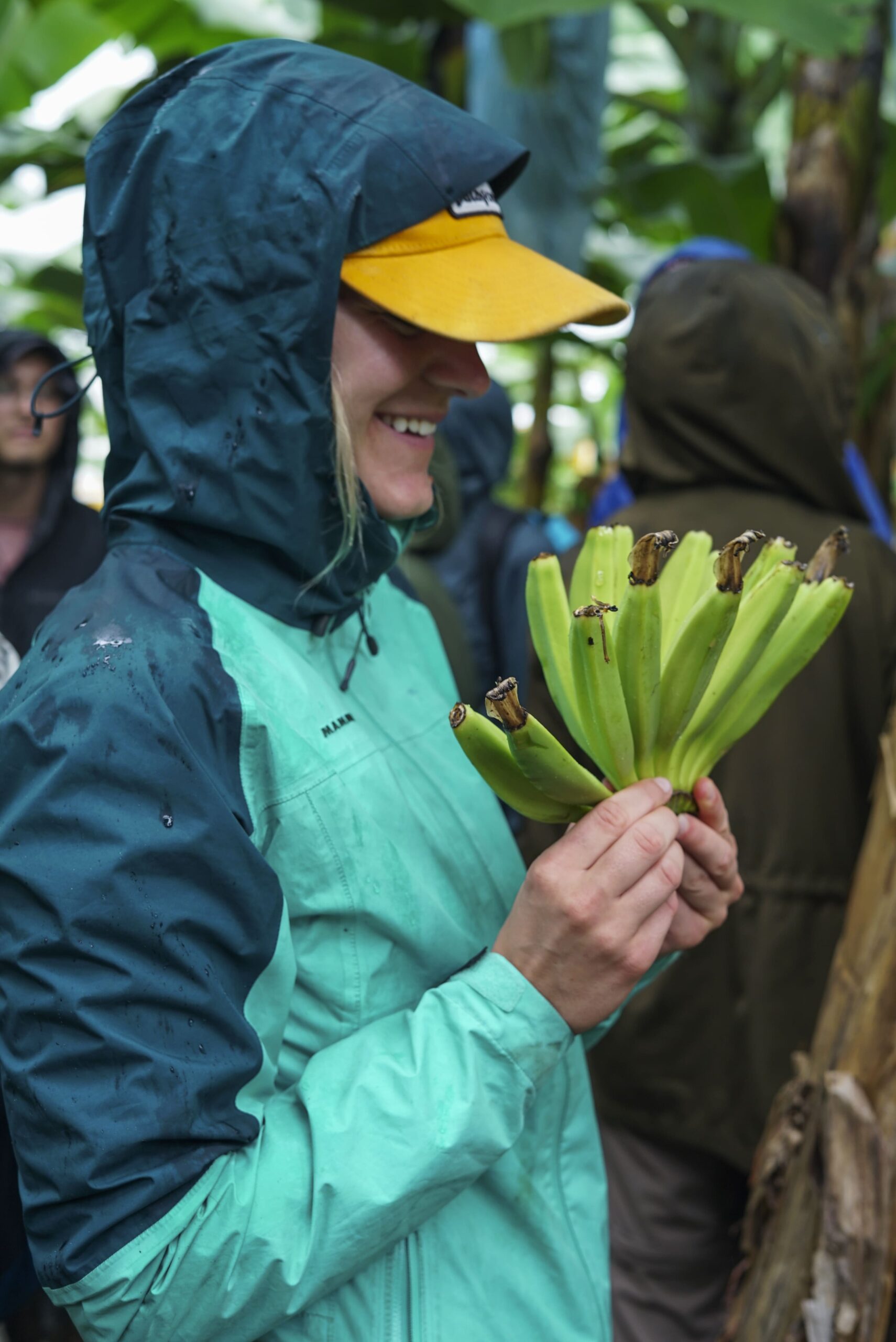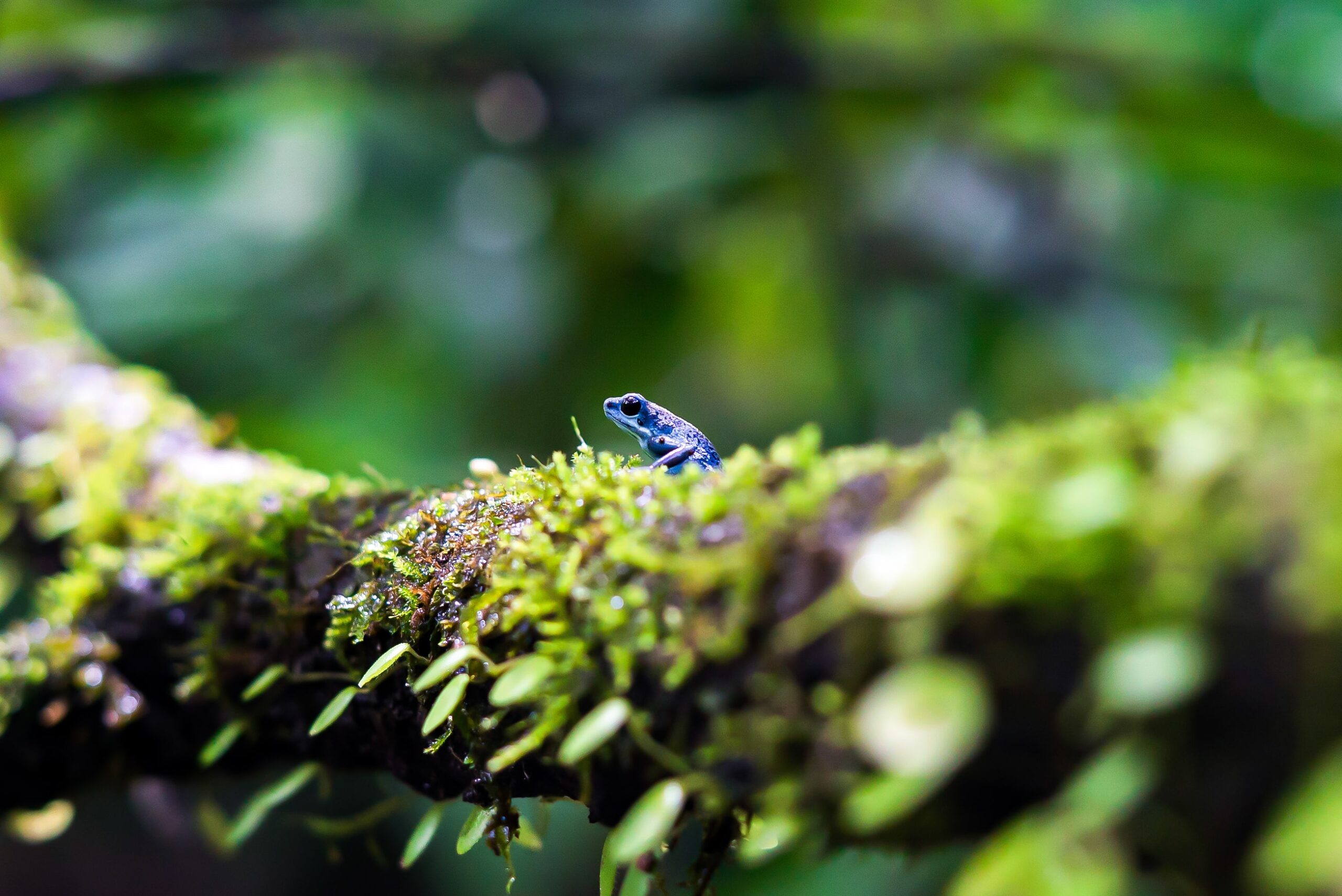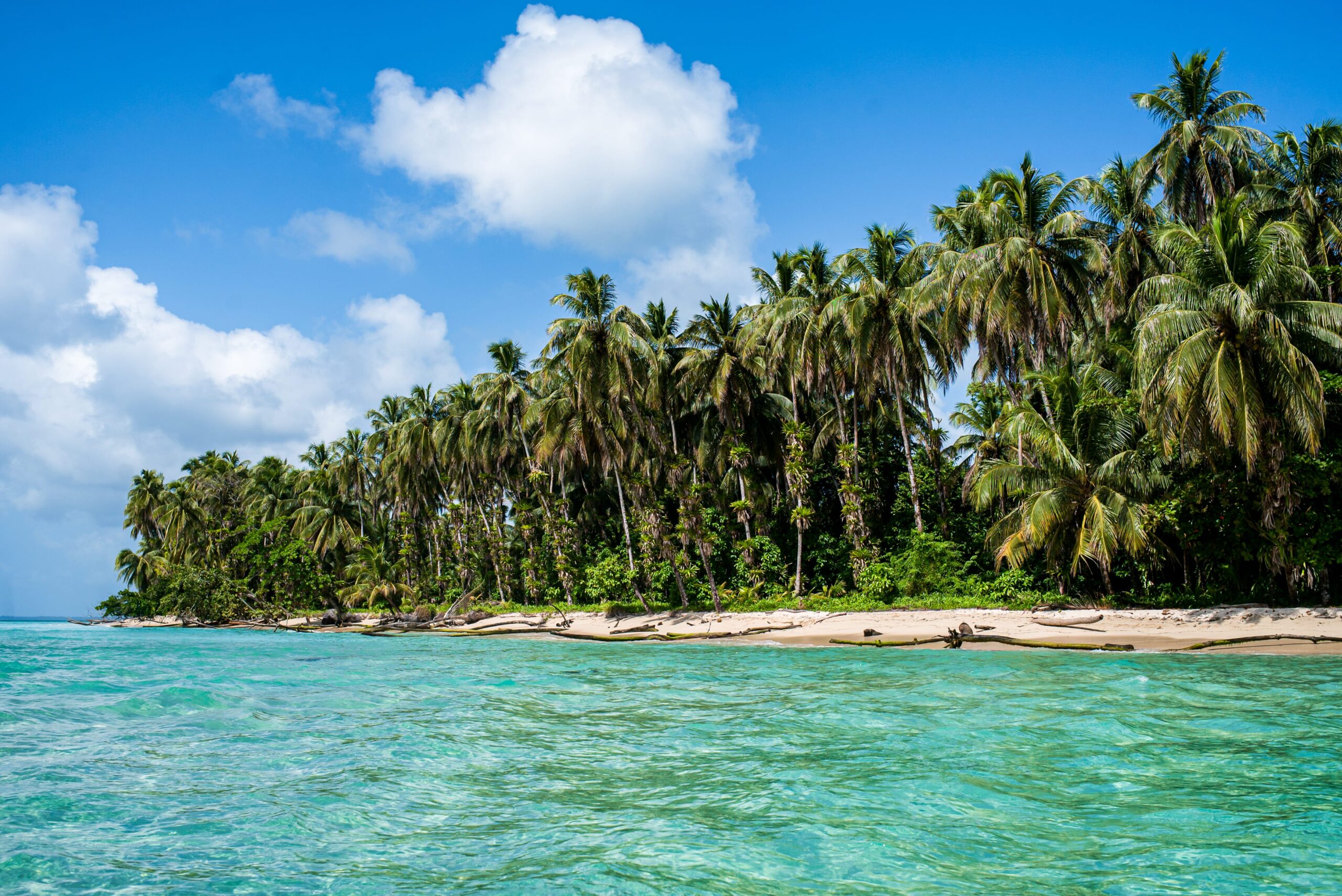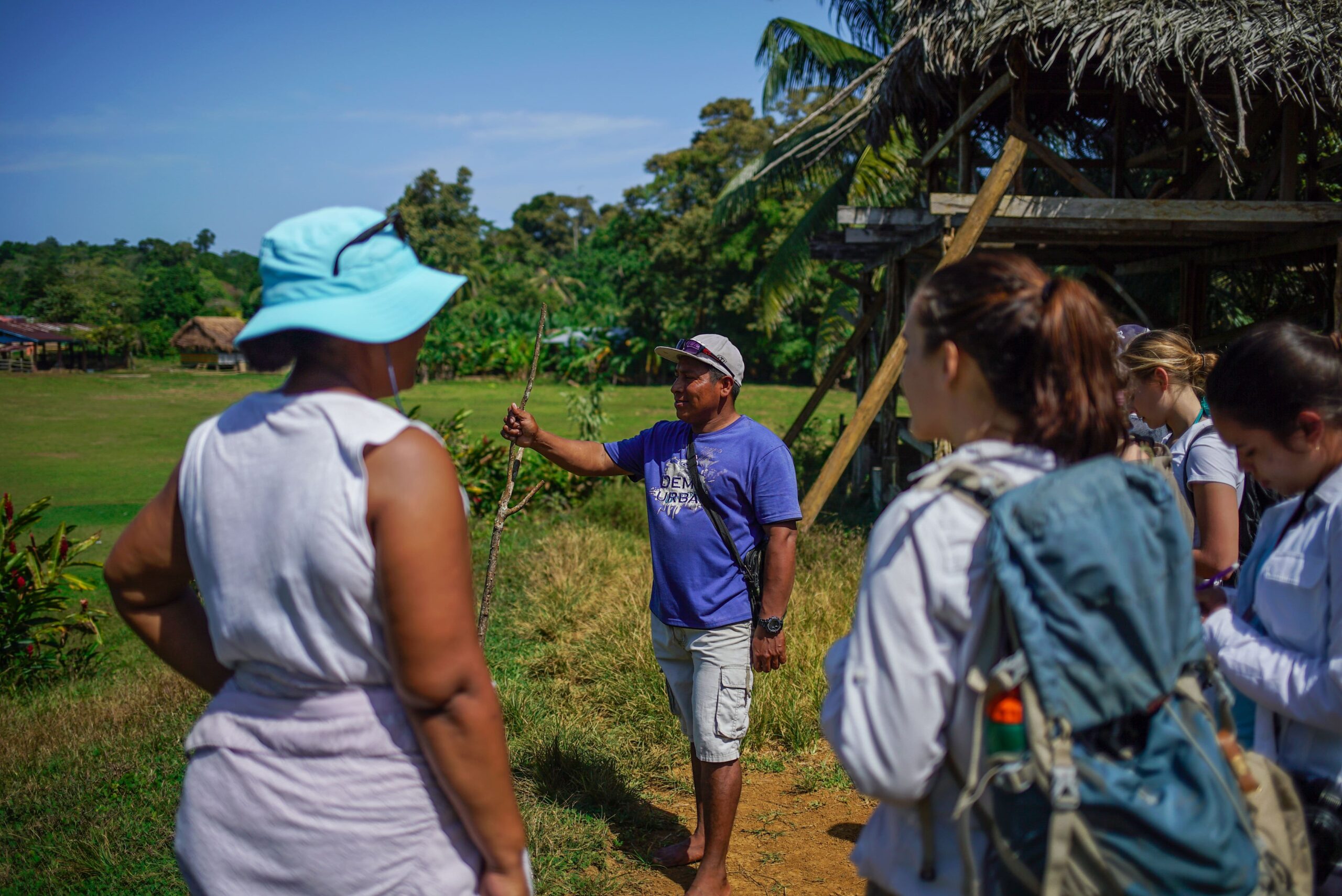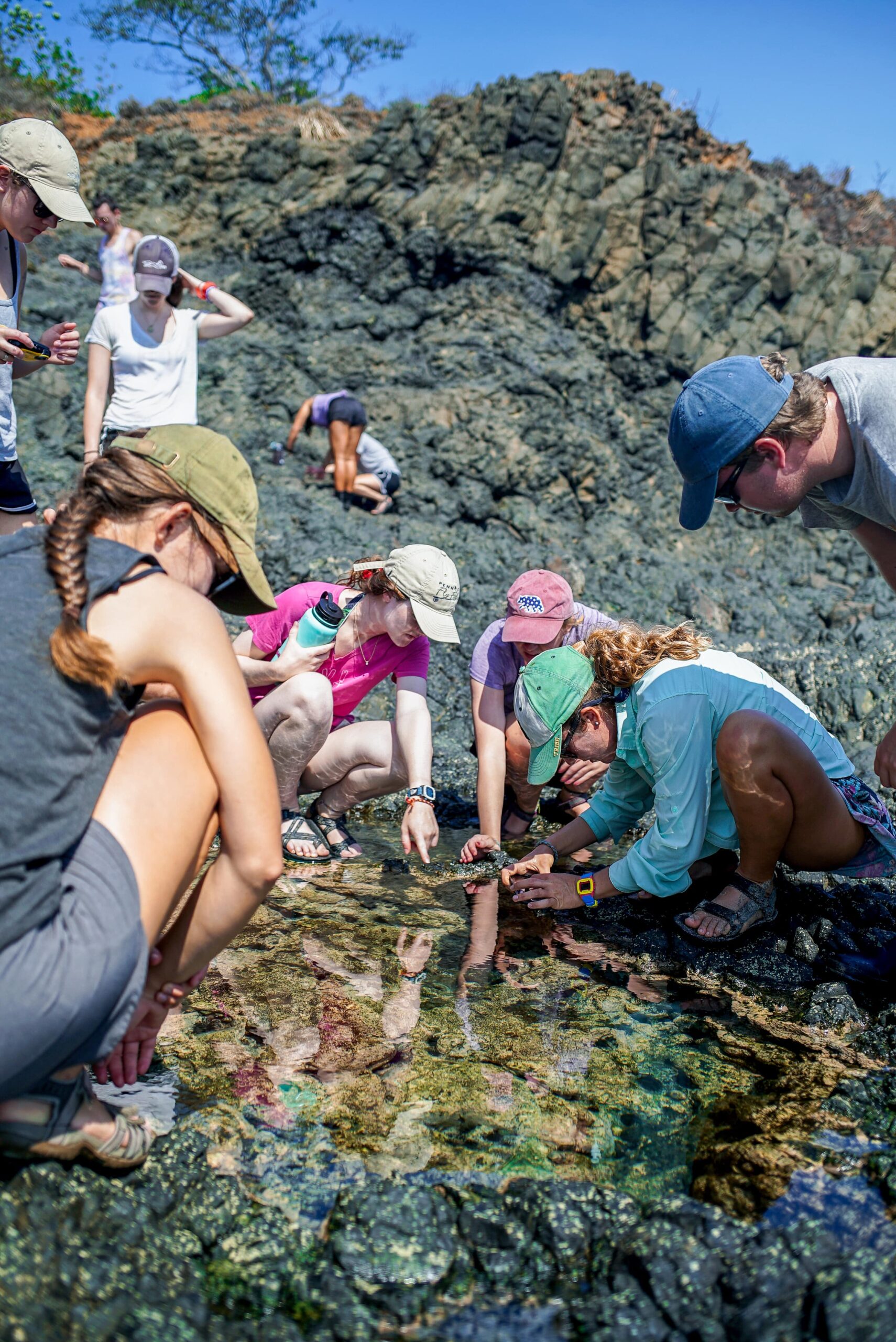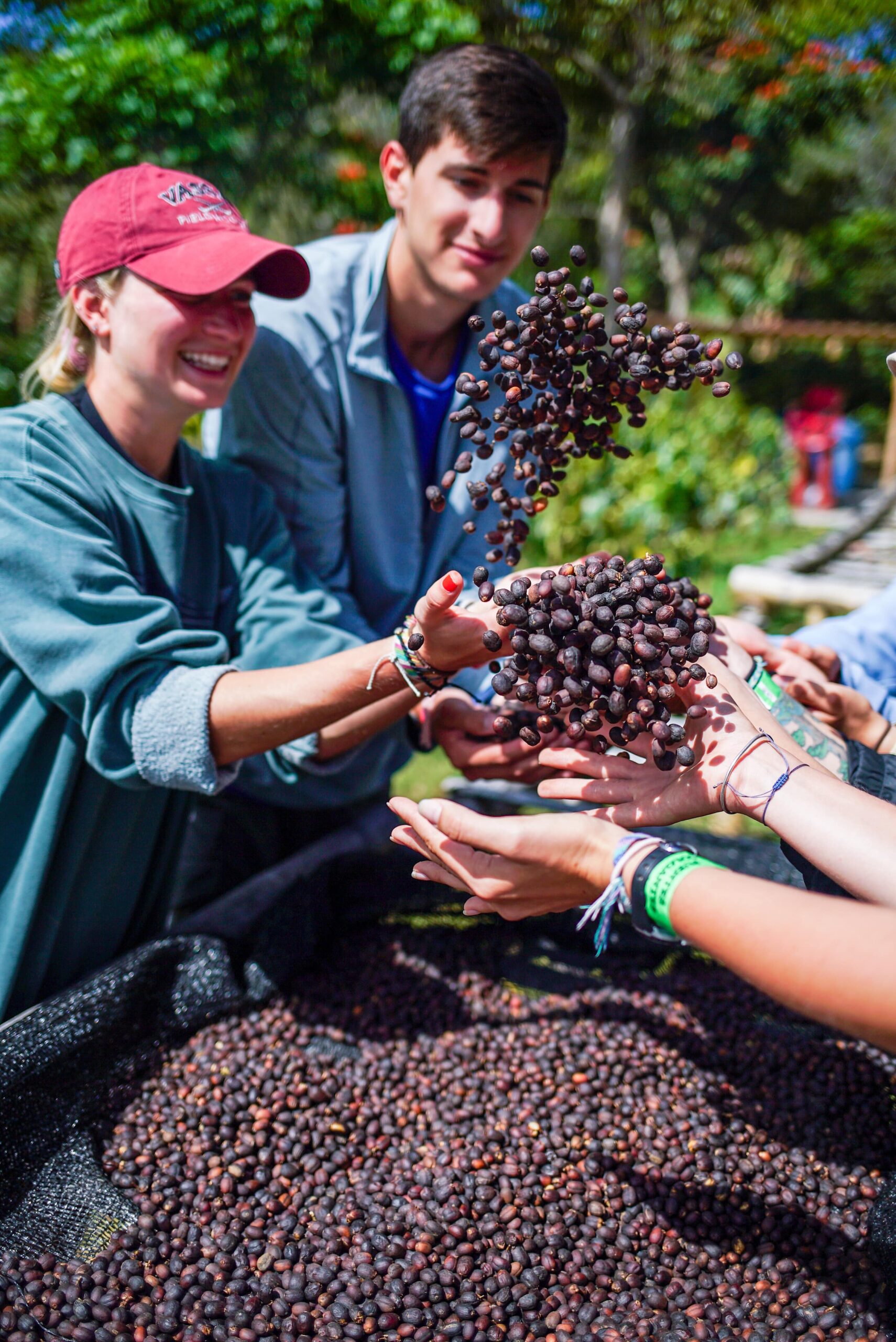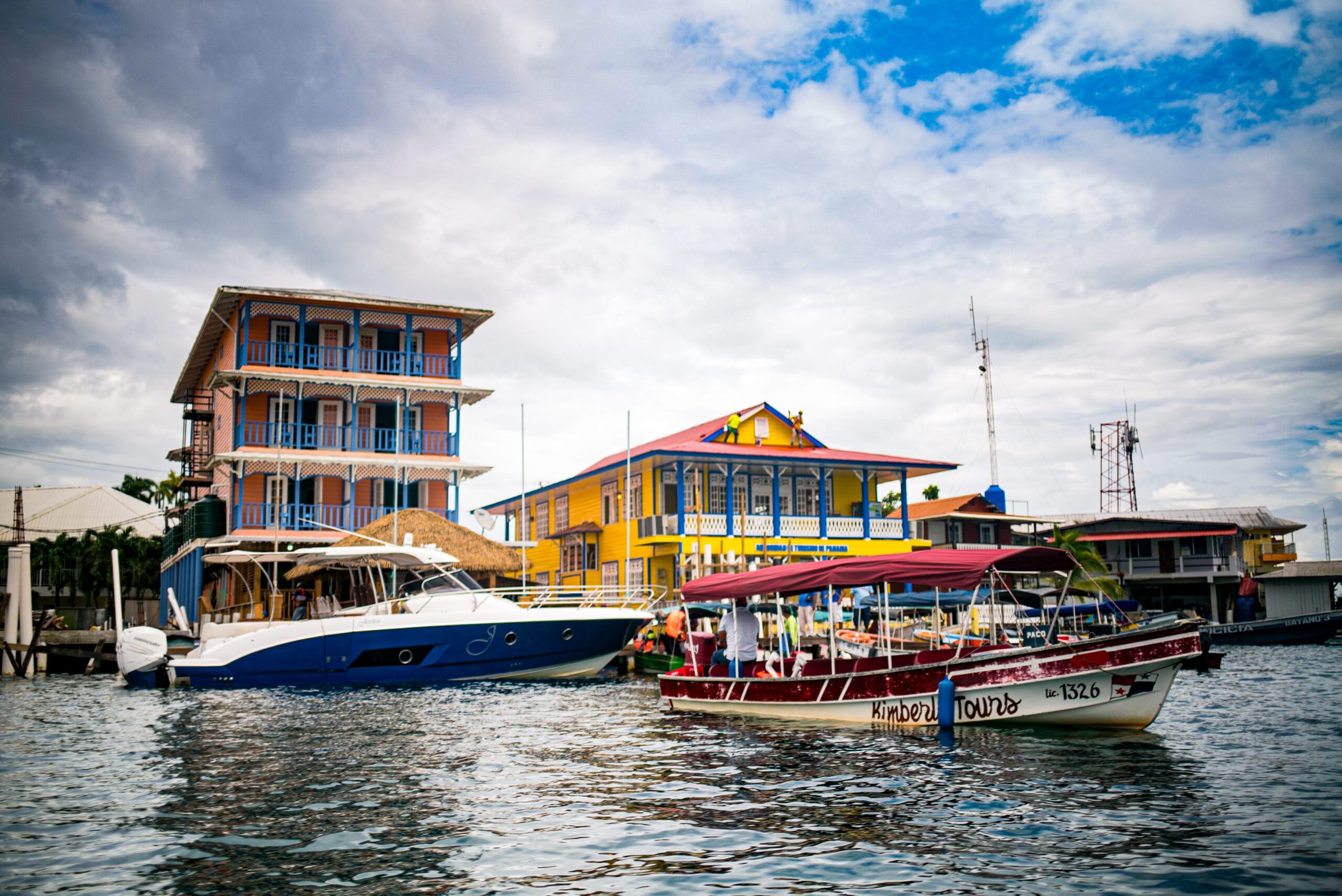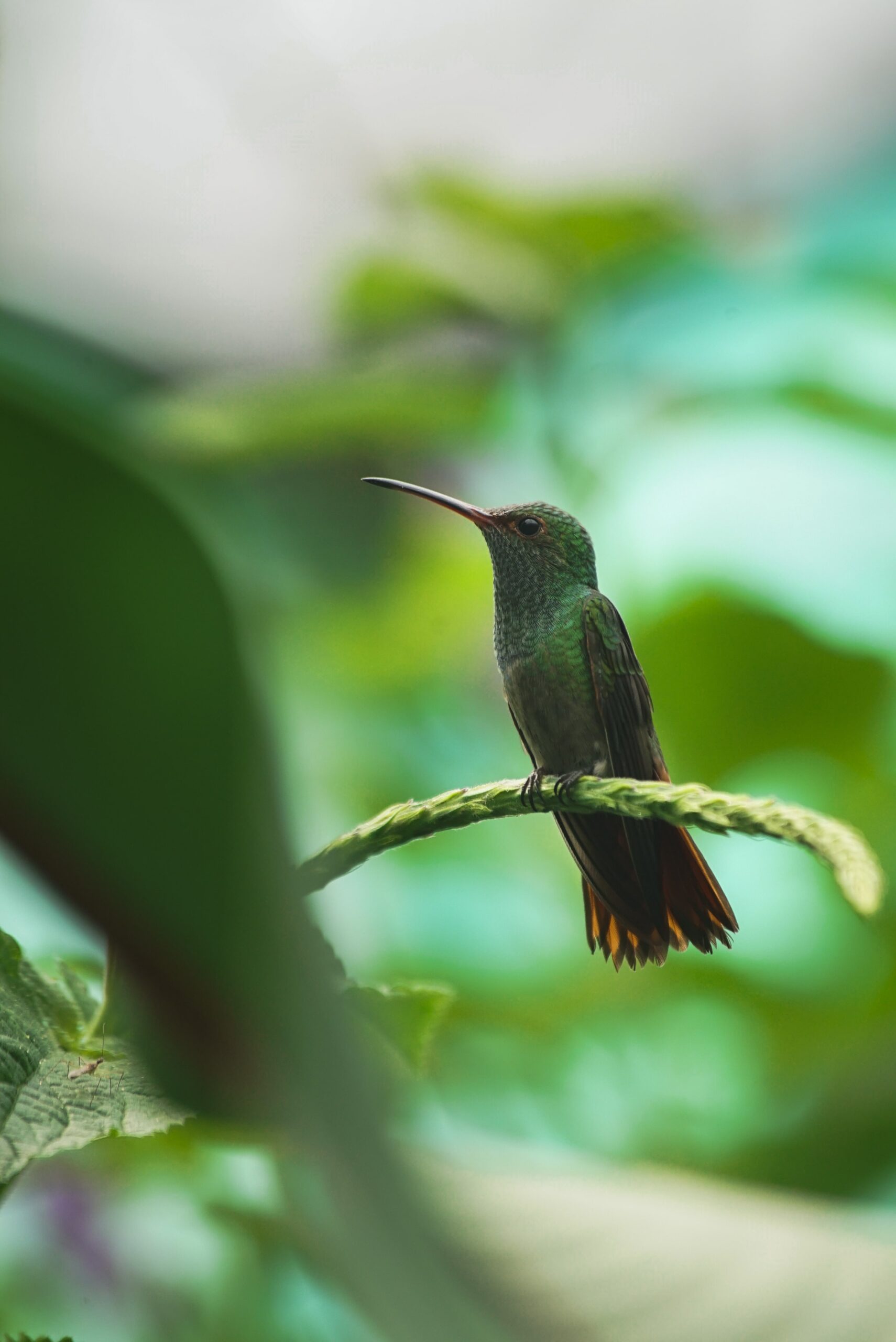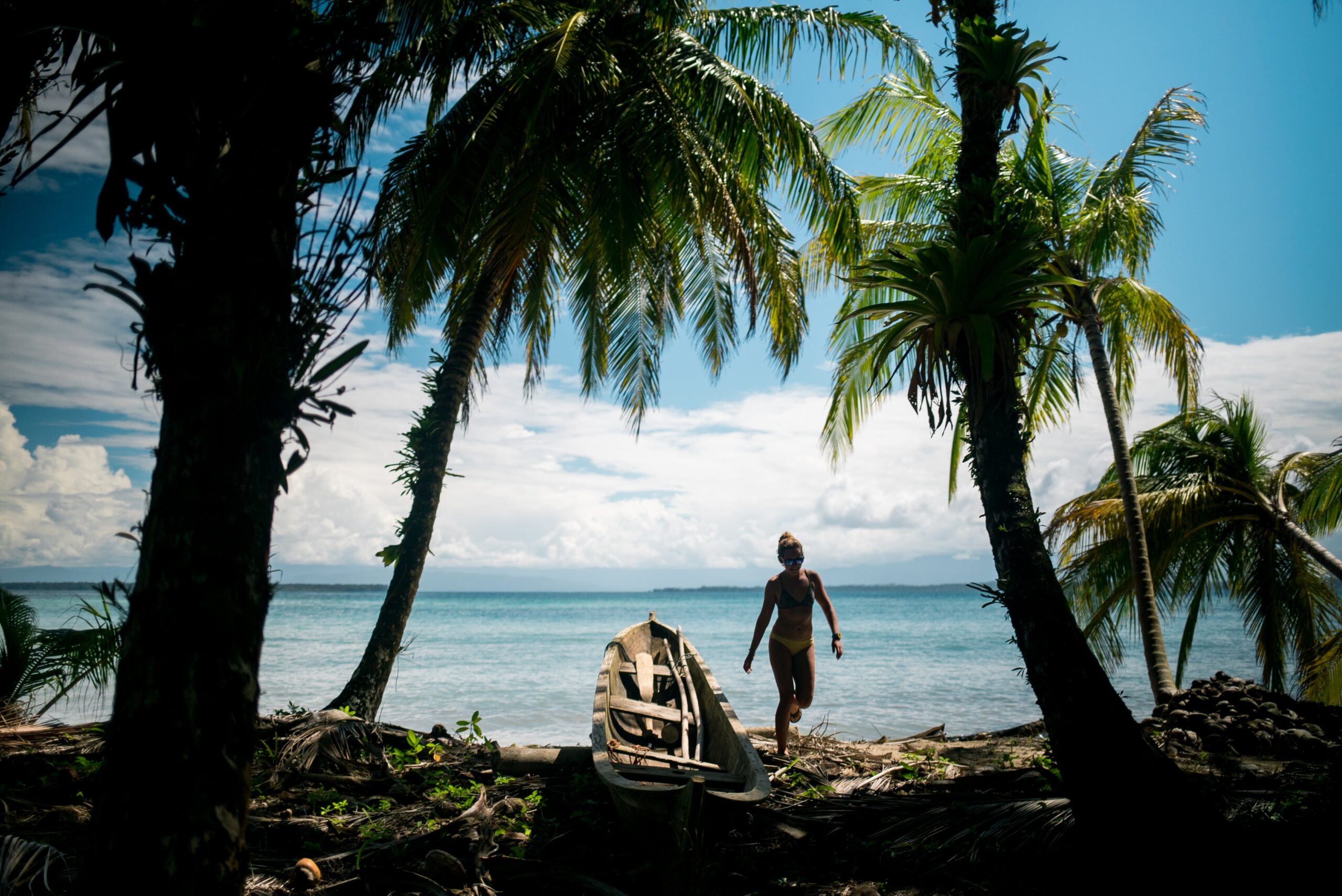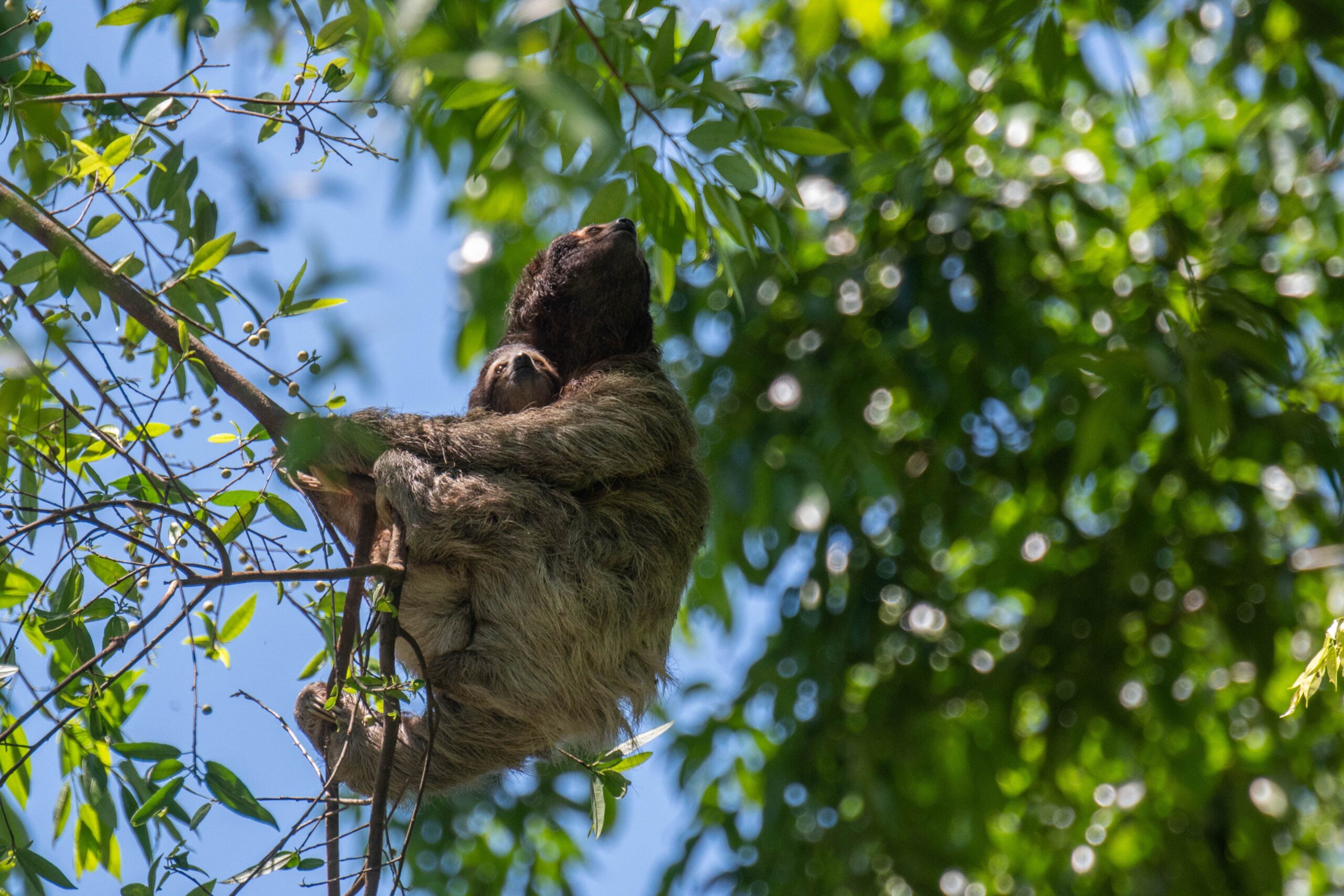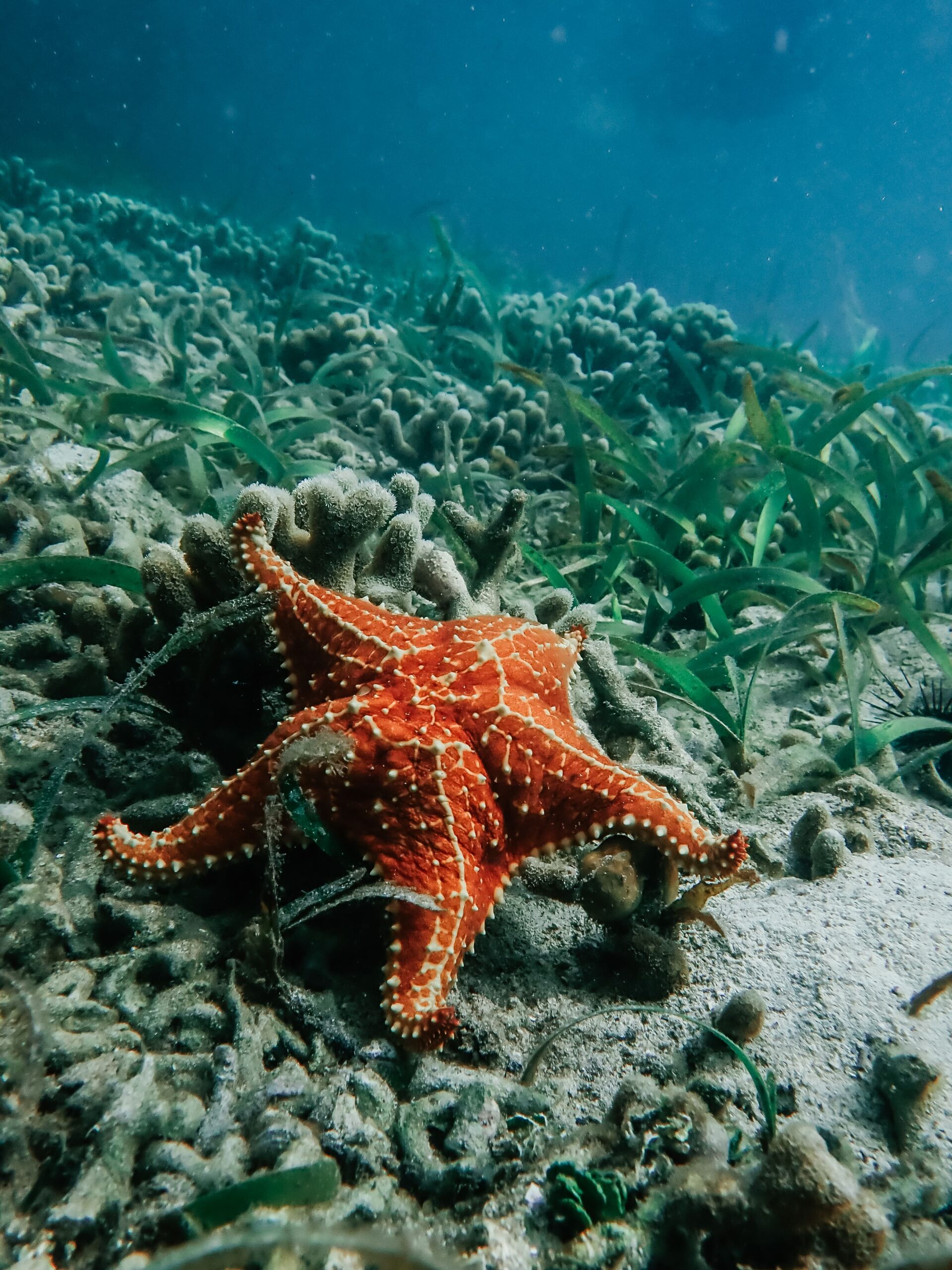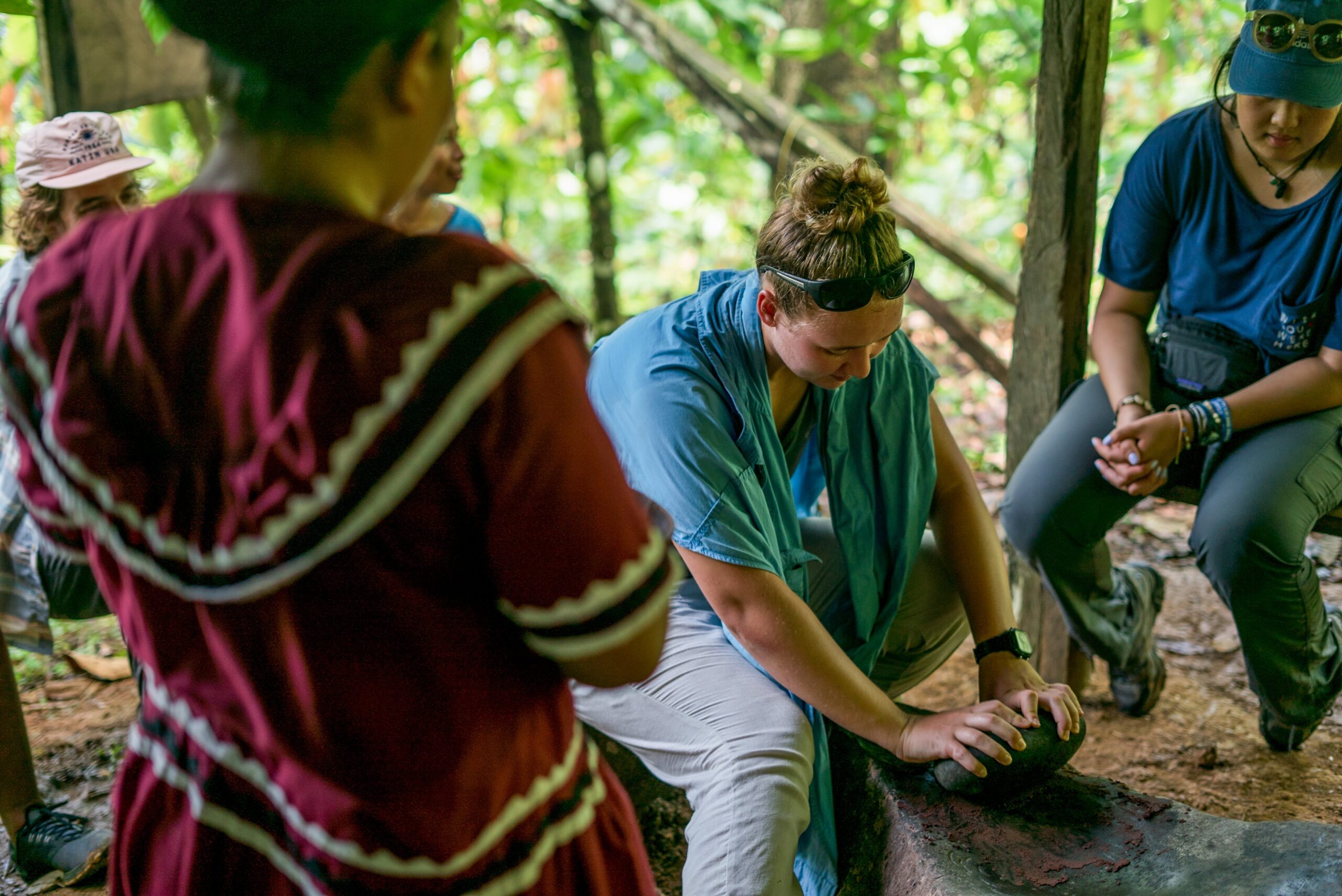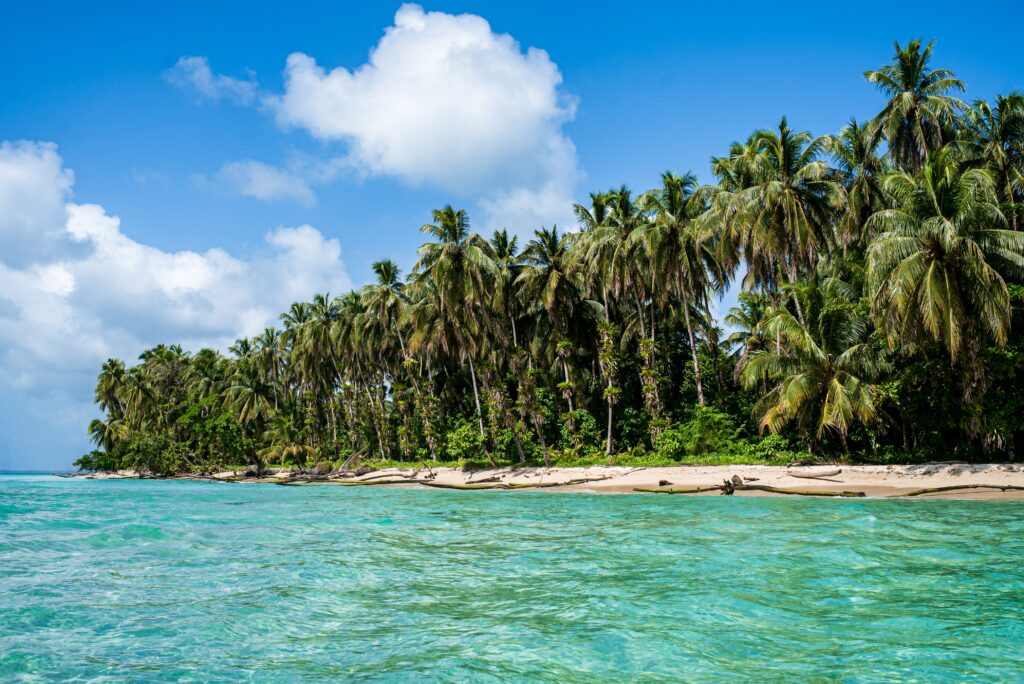
Program Costs
- Tuition
- Room & Board
- Total
Application Deadlines
Resources
Tropical Island Biodiversity Studies
On Isla Colón in the Bocas del Toro archipelago, coral reefs, mangroves, and tropical forests form one of the most biodiverse seascapes in the Caribbean. Students scramble from reef transects to frog choruses, from leaf-cutter ant trails to mangrove mapping. During surveys, students may spot parrots moving between forest and coast, reminders of the ecological connectivity linking these systems. Yet this closeness is fragile under relentless development. Each project sharpens the dilemma: connectivity celebrated globally, fragmentation lived locally. Students leave with both data and a sharper sense of how conservation and livelihoods must be balanced on islands under global pressure.
- Assist with coral nursery maintenance at the Caribbean Coral Restoration Center, surveying nearby reefs for coral health and recruitment rates.
- Trek mangrove islands and rainforest trails, collecting species data and linking habitat health to local policy impacts.
- Record plant uses and agroforestry practices on cacao farms, sampling products and documenting cultural narratives.
- Chart waste flows and coastal pressures during inter-island field trips, from fishing docks to seagrass beds.
- Conduct Directed Research: frame a stakeholder-driven question, collect and analyze field data with faculty guidance, and present actionable findings to local partners.
Academics
This academically rigorous program follows a six-day/week schedule. Each program combines theory learned during classroom sessions with field-based applications. The interdisciplinary curriculum is designed to help students actively discover and understand the complexities of environmental, social, and economic issues in Panama.
Major academic themes include:
- Climate change impacts
- Rainforest and marine ecology
- Indigenous tourism and sustainability
- Marine protected areas
- Conservation and natural resource management
- Ecosystem health assessments
- Tourism impacts on ecosystems and human populations
Courses
On the Tropical Island Biodiversity Studies program, you will take three 4-credit disciplinary courses, one 2-credit language and culture course, and a 4-credit capstone Directed Research course. Courses are participatory in nature and are designed to foster inquiry and active learning. Each course combines lectures, field exercises, assignments, tests, and research. All courses are taught in English.
Cultural Competence in Conservation (Language and Culture)
This course contains two distinct but integrated modules. The Spanish language module offers listening, oral, and written practice of the Spanish language at beginner, intermediate, and advanced levels of proficiency. Students engage in oral and written grammar and vocabulary exercises, and develop Spanish language skills and tools required for their research projects. The Society and Culture of Panama module helps students to develop a more refined understanding of Panamanian culture and the various communities with which we work. Students participate in lectures, field exercises, and other activities—all of which teach them strategies and skills for working with people in a community-based research context and help them to assist with community extension projects.
Environmental Governance, Development, and Conservation
This course examines environmental policy and socioeconomic values through the lens of tourism development in Bocas del Toro, Panama (Bocas). After discussing environmental and social challenges historically connected with international tourism development, we will then explore the ideological thrust towards sustainable tourism, as well as critique this concept – always asking: “what are we sustaining and for whom?”
Tropical Forest Ecology and Resource Management
The Tropical Forest Ecology and Resource Management course in the Tropical Island Biodiversity Studies (TIBS) program introduces students to concepts and tools to study and manage tropical forest ecosystems. The course covers basic principles about the factors driving biodiversity patterns, with a focus on tropical systems, explores symbiotic relationships among species within the rain forest and provides insights into the importance of neotropical forests worldwide. Thus, as part of this course we will conduct activities focused on learning about how to assess changes in biodiversity, learn about ecological processes such as forest dynamics and soil productivity, and ecosystem services.
Tropical Coastal Ecology
Tropical Coastal Ecology (TCE) is a course that provides fundamental knowledge necessary to understand the main ecological processes and interactions in a fragile marine island ecosystem.
Basic ecological principles are paired with field observation and measurement to understand the interdependencies of species, populations, communities and ecosystems in the coastal and marine environment, and with particular attention to the management of resources and environments. Our studies will focus on the shallow marine and coastal environments of Bocas del Toro with an emphasis on coral reef, seagrass and mangrove habitats.
We will study the biology, ecology and behavior of key species, including those that form habitats and those that are important resources to the people of Bocas del Toro through fisheries and tourism. Finally, we will consider the impact of anthropogenic disturbance and global climate change to the island ecosystem and organisms living there, as well as discuss possible management solutions
Directed Research – Panama
This course prepares students to distinguish hidden assumptions in scientific approaches and separate fact from interpretation, cause from correlation, and advocacy from objectivity. Students learn specific tools including: experimental design; field techniques; basic descriptive statistics; and parametric and non-parametric quantitative analysis. Emphasis is placed on succinct scientific writing, graphic and tabular presentation of results, and effective delivery of oral presentations.
Core Skills
You will gain practical skills in the field such as: species identification, habitat and biodiversity assessment, experience using underwater surveying with transects and quadrats, basic Spanish language skills, wildlife population monitoring techniques, tourism impact assessment methods, research design and implementation, quantitative and qualitative data collection and analysis, and research presentation.
Field Sites
You will visit different ecosystems and communities which may include coral reefs, tropical rainforests, coastal forests and beaches, Indigenous Ngöbe communities, island ecosystems, the Caribbean Coral Restoration Center, Panama City and the Panama Canal, mangrove forests and seagrass meadows, marine protected areas, banana farms and other agricultural operations, riverine ecosystems, and the vibrant small-town community of Bocas.
Other Panama Programs
Tropical Island Biodiversity Studies
More Information
Program Costs
- Tuition
- Room & Board
- Total
Tropical Island Ecosystems: The Human Impact
More Information
Program Costs
- Tuition
- Room & Board
- Total

